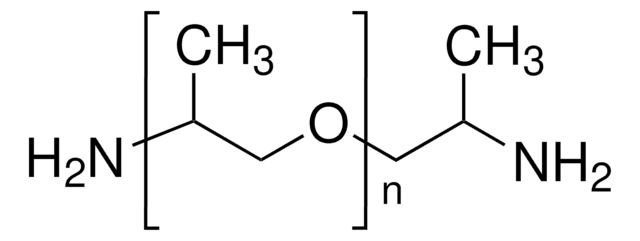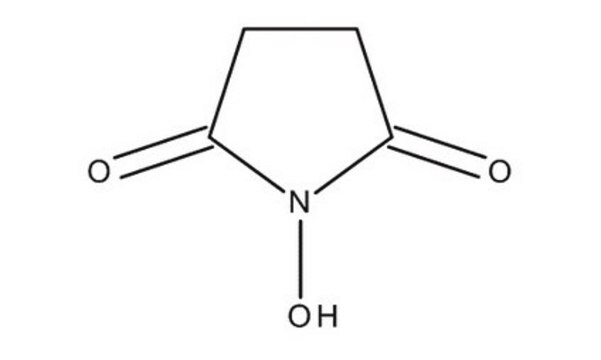Wichtige Dokumente
752444
Poly(ethylenglycol)bis(amin)
average MN 6,000, cross-linking reagent carboxyl reactive, amine
Synonym(e):
O,O′-Bis-(2-aminoethyl)-polyethylenglykol, PEG-Diamin, Polyoxyethylenbis(amin)
About This Item
Empfohlene Produkte
Produktbezeichnung
Poly(ethylenglycol)bis(amin), average Mn 6,000
Form
solid
Qualitätsniveau
Mol-Gew.
average Mn 6,000
Eignung der Reaktion
reagent type: cross-linking reagent
reactivity: carboxyl reactive
mp (Schmelzpunkt)
54-60 °C
Ω-Ende
amine
α-Ende
amine
Polymerarchitektur
shape: linear
functionality: homobifunctional
InChI
1S/C6H16N2O2/c7-1-3-9-5-6-10-4-2-8/h1-8H2
InChIKey
IWBOPFCKHIJFMS-UHFFFAOYSA-N
Suchen Sie nach ähnlichen Produkten? Aufrufen Leitfaden zum Produktvergleich
Verwandte Kategorien
Anwendung
- Polymer for preparing enzyme conjugates soluble in organic solvents
- Promising drug carrier.
Lagerklassenschlüssel
11 - Combustible Solids
WGK
WGK 3
Flammpunkt (°F)
Not applicable
Flammpunkt (°C)
Not applicable
Hier finden Sie alle aktuellen Versionen:
Analysenzertifikate (COA)
Die passende Version wird nicht angezeigt?
Wenn Sie eine bestimmte Version benötigen, können Sie anhand der Lot- oder Chargennummer nach einem spezifischen Zertifikat suchen.
Besitzen Sie dieses Produkt bereits?
In der Dokumentenbibliothek finden Sie die Dokumentation zu den Produkten, die Sie kürzlich erworben haben.
Kunden haben sich ebenfalls angesehen
Artikel
Highlighting existing and novel fabrication methods for both, solid and hydrogel-based scaffold for tissue engineering applications.
The use of hydrogel-based biomaterials for the delivery and recruitment of cells to promote tissue regeneration in the body is of growing interest. This article discussed the application of hydrogels in cell delivery and tissue regeneration.
Unser Team von Wissenschaftlern verfügt über Erfahrung in allen Forschungsbereichen einschließlich Life Science, Materialwissenschaften, chemischer Synthese, Chromatographie, Analytik und vielen mehr..
Setzen Sie sich mit dem technischen Dienst in Verbindung.










